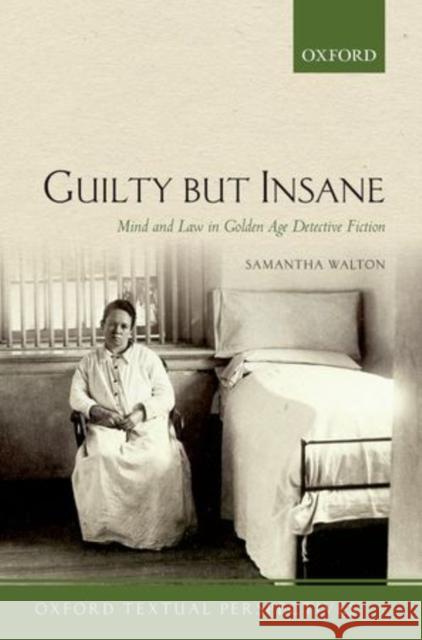Guilty But Insane: Mind and Law in Golden Age Detective Fiction » książka
Guilty But Insane: Mind and Law in Golden Age Detective Fiction
ISBN-13: 9780198723332 / Angielski / Twarda / 2015 / 288 str.
Guilty But Insane takes an historical approach to golden age detective fiction by Margery Allingham, Christianna Brand, Agatha Christie, Dorothy L. Sayers, and Gladys Mitchell. It examines how writers and readers of detective fiction during the 1920s to 1940s understood guilt, responsibility, and the workings of the mind as they related to the commission, the investigation, and the punishment of crime. Under the lens of psychology, the detective novel is revealed as a site for the negotiation of competing interpretations of sanity and insanity. An unexplored depth and subtlety is revealed in detective novels that address major controversies in legal and psychiatric theory and practice, while significant resonances with specific concerns of modernist fiction come into focus for the first time. During the interwar years, proponents of competing psychological schools challenged legal concepts of responsibility and free will. In response, golden age writers began to reflect on the genre's promise to accomplish true and just solutions in a social order in which the relationship between law and justice was being problematized on several fronts. By making connections between high modernism and popular culture, and by tracing the impact of psychological discourses across a range of different cultural outputs, this book makes a persuasive case for reading detective fiction historically. It aims to demonstrate the richness of these texts and their value for scholarship, not only as historical documents or residues of discourse, but as literary texts which challenge, subvert, toy with and test the prevailing values and prejudices of interwar Britain.











